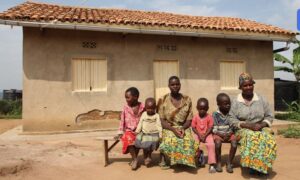The Problem of Cheap Housing Development for Low-Income Communities in Urban Areas
Housing is a basic need for humans that must be fulfilled because it has an impact on human happiness, lifestyle, and productivity (Asante & Ehwi, 2022). The world community through the United Nations (UN) has determined this issue to be a global issue that must be met.
The problem of cheap housing development for low-income communities in urban areas have been discussed in detail in this paper.
This issue is emphasized as one of the seventeen agendas of the sustainable development goals (SDGs) precisely on goal-11 namely cities and settlements that are inclusive, quality, safe, resilient, and sustainable (Filyushina et al., 2023; Gusakova et al., 2023; and Hasddin et al., 2022a).
The Problem of Cheap Housıng Development for Low-Income Communıtıes ın Urban; Transformatıon of the Transıtıonal Space and Revıew for Further Research Posıtıons Issues that have been widely discussed and become material for criticism by researchers and practitioners are regarding the provision of housing and the affordability of the community in obtaining housing.
Some recent researchers who are concerned with analyzing this problem include Lee et al. (2022); Some of the studies above state that the issue of housing provision or affordability occurs in all countries, both developed countries, and especially developing countries.
Lee et al. (2022) specifically mention that globally is currently facing a crisis of urban housing affordability, because housing development is increasingly inaccessible to low-income households, including the middle class.
Cases like this also occur in the United States and the United Kingdom which are marked by an increase in the selling value of houses, poor households (rent) are also experiencing difficulties where 50% of their income is spent on renting a house McClymonds (2022) to an imbalance (proportion) in the distribution of home ownership, especially blacks (Desmond, 2018).
Fulfillment of decent and affordable housing is a pressure for the government, especially in urban areas, because those (individuals and households) who do not own a home give rise to many negative consequences inclusively to environmental problems. Anderson et al. (2016); and Newman & Holupka (2016, 2015, and 2014) reported that household inaccessibility to housing causes family members, especially children, to suffer from diseases resulting from bad health, which has implications for education.
When aggregated from a number of households that experience the same thing, this creates macroeconomic problems Kim et al. (2021); Seitz (2021), urban disorder (slums), and environmental degradation, especially in housing locations that are not suitable.
The same report submitted by Reyes (2021); Hsieg & Moretti (2019); and Lee & Painter (2013) confirmed the result. There is still a gap between the provision of housing and the affordability (ownership) of housing, especially for those with irregular incomes.

Further reading: Global housing and affordability challenges
Also Read: Innovations in stock matching and allocations: the social housing challenge
